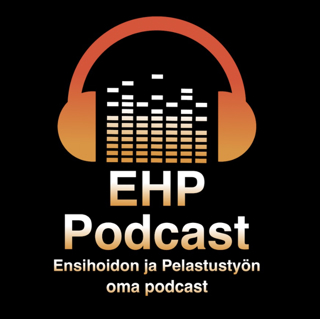
Episode 103 - (LIVE) Parent Training: The Effects of Parent Stress, Child Outcome, and the BCBA-Caregiver Relationship
LIVE from the Thompson Center! It’s ABA Inside Track! We’re back again with a talk we gave last month at the 14th Annual Thompson Center for Autism Conference all about parent stress. But, a funny thing happened on the way to the podium: We realized that decreasing parent stress isn’t as easy as just doing good training. Listen in for some tips on how to improve your parent-BCBA collaboration skills. And, as a big thank you to all of our listeners, this episode is good for one FREE CEU!!! After you listen to the whole thing, of course. Articles discussed this episode: Strauss, K., Vicari, S., Valeri, G., DElia, L., Arima, S., & Fava, L. (2012). Parent inclusion in Early Intensive Behavioral Intervention: The influence of parental stress, parent treatment fidelity and parent-mediated generalization of behavior targets on child outcomes. Research i n Developmental Disabilities, 33, 688-703. doi: 10.1016/j.ridd.2011.11.008 Allen, K.D. & Warzak, W.J. (2000). The problem of parental nonadherence in clinical behavior analysis: Effective treatment is not enough. Journal of Applied Behavior Analysis, 33, 373-391. doi: 10.1901/jaba.2000.33-373 Helton, M.R., & Alber-Morgan, S.R. (2018). Helping parents understand applied behavior analysis: Creating a parent guide in 10 steps. Behavior Analysis in Practice, 11, 496-503. doi: 10.1007/s40617-018-00284-8 Taylor, B.A., LeBlanc, L.A., & Nosik, M.R. (2019). Compassionate care in behavior analytic treatment: Can outcomes be enhanced by attending to relationships with caregivers? Behavior Analysis in Practice, 12, 654-666. doi: 10.1007/s40617-018-00289-3 If you're interested in ordering CEs for listening to this episode, click here to go to the store page. You'll need to enter your name, BCBA #, and the two episode secret code words to complete the purchase. Email us at abainsidetrack@gmail.com for further assistance.
30 Loka 20191h 20min

Episode 102 - PBIS
So once we get past some acronym confusion, we dig deep into the mystery of PBIS. We discuss the levels of support, the controversy, the research, and the journal article with the longest title ever! At the end, do we cast our votes for PBIS as an effective treatment? Or do we send PBIS to the principal’s office? Articles discussed this episode: Anderson, C.M. & Kincaid, D. (2005). Applying behavior analysis to school violence and discipline problems: Schoolwide positive behavior support. The Behavior Analyst, 25, 49-63. doi: 10.1007/bf03392103 Horner, R.H., Sugai, G., & Anderson, C.M. (2010). Examining the evidence base for school-wide positive behavior support. Focus on Exceptional Children, 42, 2-16. doi: 10.17161/fec.v42i8.6906 Bradshaw, C.P., Waasdorp, T.E., & Leap, P.J. (2012). Effects of school-wide positive behavioral interventions and supports on child behavior problems. Pediatrics, 130, 1136-1145. doi: 10.1542/peds.2012-0243 Putnam, R.F. & Knoster, T. (2016). A reply to the commentaries on “school-wide PBIS: An example of applied behavior analysis implemented at a scale of social importance” by Horner and Sugai (2015): PBIS is function over form: The clear behavioral roots and opportunities the PBIS framework presents to the field of behavior analysis moving forward. Behavior Analysis in Practice, 9, 95-101. doi: 10.1007/s40617-015-0092-x If you're interested in ordering CEs for listening to this episode, click here to go to the store page. You'll need to enter your name, BCBA #, and the two episode secret code words to complete the purchase. Email us at abainsidetrack@gmail.com for further assistance.
23 Loka 20191h 23min

Episode 101 Instructional Fading
We all love instructions. We all love fading. But, when the two go together, do we create a treatment better than the sum of its parts? Let’s take a trip through the literature and discuss the ins and outs of instructional fading together, shall we? Articles discussed this episode: Pace, G.M., Iwata, B.A., Cowder, G.E., Andree, P.J., & McIntyre, T. (1993). Stimulus (instructional) fading during extinction of self-injurious escape behavior. Journal of Applied Behavior Analysis, 26, 205-212. doi: 10.1901/jaba.1993-26-205 Zarcone, J.R., Iwata, B.A., Smith, R.G., Mazaleski, J.L., & Lerman, D.C. (1994). Reemergence and extinction of self-injurious escape behavior during stimulus (instructional) fading. Journal of Applied Behavior Analysis, 27, 307-316. doi: 10.1901/jaba.1994/27-307 Ringdahl, J.E., Kitsukawa, K., Andelman, M.S., Call, N., Winborn, L., Barretto, A., & Reed, G.K. (2002). Differential reinforcement with and without instructional fading. Journal of Applied Behavior Analysis, 35, 291-294. doi: 10.1901/jaba.2002.35-291 If you're interested in ordering CEs for listening to this episode, click here to go to the store page. You'll need to enter your name, BCBA #, and the two episode secret code words to complete the purchase. Email us at abainsidetrack@gmail.com for further assistance.
16 Loka 20191h 3min

Episode 100 - The History of ABA w/ Dr. Gina Green
It’s finally here! Our 100th episode! And what better way to celebrate than to take the time to remember the events that came before us, namely, the origins of applied behavior analysis. And if you thought we were just going to say “Skinner” a bunch of times, how wrong you are. Special guest, Dr. Gina Green from APBA, leads our trip down memory lane with an amazing account of how the field has changed over the years before we all break out our crystal balls and look to what the future holds. Thanks to everyone who has listened and supported us low these many episodes! Articles discussed this episode: Association of Professional Behavior Analysts (2017). Identifying applied behavior analysis interventions. San Diego, CA: ABPA Morris, E.K., Altus, D.E., & Smith, N.G. (2013). A study in the founding of applied behavior analysis through its publications. The Behavior Analyst, 36, 73-107. doi: 10.1007/bf03392293 Mace, F.C. & Critchfield, T.S. (2010). Translational research in behavior analysis: Historical traditions and imperative for the future. Journal of the Experimental Analysis of Behavior, 93, 293-312. doi: 10.1901/jeab.2010.93-293 If you're interested in ordering CEs for listening to this episode, click here to go to the store page. You'll need to enter your name, BCBA #, and the two episode secret code words to complete the purchase. Email us at abainsidetrack@gmail.com for further assistance.
9 Loka 20191h 30min

October 2019 Preview
This October, we’re celebrating our 100th episode! While we spend time patting ourselves on the back, we almost forget to share our topics for the month including our longest episode yet with Dr. Gina Green taking a deep dive into the history of ABA. And, another fun live show from the Thompson Center for Autism Conference. Get ready for more episodes than you can shake a pumpkin at! Articles for October 2019 The History of ABA w/ Dr. Gina Green Association of Professional Behavior Analysts (2017). Identifying applied behavior analysis interventions. San Diego, CA: ABPA Morris, E.K., Altus, D.E., & Smith, N.G. (2013). A study in the founding of applied behavior analysis through its publications. The Behavior Analyst, 36, 73-107. doi: 10.1007/bf03392293 Mace, F.C. & Critchfield, T.S. (2010). Translational research in behavior analysis: Historical traditions and imperative for the future. Journal of the Experimental Analysis of Behavior, 93, 293-312. doi: 10.1901/jeab.2010.93-293 Instructional Fading Pace, G.M., Iwata, B.A., Cowder, G.E., Andree, P.J., & McIntyre, T. (1993). Stimulus (instructional) fading during extinction of self-injurious escape behavior. Journal of Applied Behavior Analysis, 26, 205-212. doi: 10.1901/jaba.1993-26-205 Zarcone, J.R., Iwata, B.A., Smith, R.G., Mazaleski, J.L., & Lerman, D.C. (1994). Reemergence and extinction of self-injurious escape behavior during stimulus (instructional) fading. Journal of Applied Behavior Analysis, 27, 307-316. doi: 10.1901/jaba.1994/27-307 Ringdahl, J.E., Kitsukawa, K., Andelman, M.S., Call, N., Winborn, L., Barretto, A., & Reed, G.K. (2002). Differential reinforcement with and without instructional fading. Journal of Applied Behavior Analysis, 35, 291-294. doi: 10.1901/jaba.2002.35-291 PBIS (Positive Behavior Interventions and Support) Anderson, C.M. & Kincaid, D. (2005). Applying behavior analysis to school violence and discipline problems: Schoolwide positive behavior support. The Behavior Analyst, 25, 49-63. doi: 10.1007/bf03392103 Horner, R.H., Sugai, G., & Anderson, C.M. (2010). Examining the evidence base for school-wide positive behavior support. Focus on Exceptional Children, 42, 2-16. doi: 10.17161/fec.v42i8.6906 Bradshaw, C.P., Waasdorp, T.E., & Leap, P.J. (2012). Effects of school-wide positive behavioral interventions and supports on child behavior problems. Pediatrics, 130, 1136-1145. doi: 10.1542/peds.2012-0243 Putnam, R.F. & Knoster, T. (2016). A reply to the commentaries on “school-wide PBIS: An example of applied behavior analysis implemented at a scale of social importance” by Horner and Sugai (2015): PBIS is function over form: The clear behavioral roots and opportunities the PBIS framework presents to the field of behavior analysis moving forward. Behavior Analysis in Practice, 9, 95-101. doi: 10.1007/s40617-015-0092-x Parent Training: The effects of parent stress, child outcome, and the BCBA-caregiver relationship (LIVE at the Thompson Center for Autism Conference) Strauss, K., Vicari, S., Valeri, G., DElia, L., Arima, S., & Fava, L. (2012). Parent inclusion in Early Intensive Behavioral Intervention: The influence of parental stress, parent treatment fidelity and parent-mediated generalization of behavior targets on child outcomes. Research i n Developmental Disabilities, 33, 688-703. doi: 10.1016/j.ridd.2011.11.008 Allen, K.D. & Warzak, W.J. (2000). The problem of parental nonadherence in clinical behavior analysis: Effective treatment is not enough. Journal of Applied Behavior Analysis, 33, 373-391. doi: 10.1901/jaba.2000.33-373 Helton, M.R., & Alber-Morgan, S.R. (2018). Helping parents understand applied behavior analysis: Creating a parent guide in 10 steps. Behavior Analysis in Practice, 11, 496-503. doi: 10.1007/s40617-018-00284-8 Taylor, B.A., LeBlanc, L.A., & Nosik, M.R. (2019). Compassionate care in behavior analytic treatment: Can outcomes be enhanced by attending to relationships with caregivers? Behavior Analysis in Practice, 12, 654-666. doi: 10.1007/s40617-018-00289-3
2 Loka 201926min

Episode 99 - Supervision Series III, pt. 3 - Staff Reinforcement
As behavior analysts, we all know how much fun work can be. But, somehow, people in other fields don’t always think of doing their jobs as fun. Suspend disbelief and learn all about what can be done to be sure that the staff at your organization are effectively reinforced. From lotteries to the paradox of the fun boss, our final Supervision September episode is the definition of a good time. Articles discussed this episode: Tews, M.J., Michel, J.W., & Stafford, K. (2013). Does fun pay? the Impact of workplace fun on employee turnover and performance. Cornell Hospitality Quarterly, 54, 370-382. doi: 10.1177/1938965513505355 Johnson, D.A. & Dickinson, A.M. (2010). Employee-of-the-month programs: Do they really work? Journal of Organizational Behavior Management, 30, 308-324. doi: 10.1080/01608061.2010.520144 Wine, B., Edgerton, L., Inzana, E., & Newcomb, E.T. (2017). Further effects of lottery odds on responding. Journal of Organizational Behavior Management, 37, 75-82. doi: 10.1080/01608061.2016.1267064 If you're interested in ordering CEs for listening to this episode, click here to go to the store page. You'll need to enter your name, BCBA #, and the two episode secret code words to complete the purchase. Email us at abainsidetrack@gmail.com for further assistance.
25 Syys 20191h 14min

Episode 98 - Supervision Series III, pt. 2 - Staff Burnout
Working with people is hard, so is it any wonder that the burnout rate for employees in human services can reach 40% or more? And paying more money doesn’t seem to be the answer. In this week’s Supervision September episode, we discuss some of the common patterns of staff burnout, whether there’s anything to be done to mitigate the problem, and how you can be a part of the solution. Articles discussed this episode: Kazemi, E., Shapiro, M., & Kavner, A. (2015). Predictors of intention to turnover in behavior technicians working with individuals with autism spectrum disorder. Research in Autism Spectrum Disorders, 17, 106-115. doi: 10.1016/j.rasd.2015.06.012 Hensel, J.M., Lunsky, Y., & Dewa, C.S. (2015). Exposure to aggressive behaviour and burnout in direct support providers: the Role of positive work factors. Research in Developmental Disabilities, 36, 404-412. doi: 10.1016/j.ridd/2014.10.033 Plantiveau, C., Ounavi, K., & Virues-Ortega, J. (2018). Hih levels of burnout among early-career board-certified behavior analysts with low collegial support in the work environment. European Journal of Behavior Analysis, 2, 195-207. doi: 10.1080/15021149.2018.1438339 If you're interested in ordering CEs for listening to this episode, click here to go to the store page. You'll need to enter your name, BCBA #, and the two episode secret code words to complete the purchase. Email us at abainsidetrack@gmail.com for further assistance.
18 Syys 20191h 16min

Episode 97 - Supervision Series III, pt 1 - Staff Feedback w/ Dr. Amy Henley
Get excited, everyone, because Supervision September is finally here! Up first, we have special guest, Dr. Amy Henley joining us to discuss her research on staff management and the proper delivery of feedback. Then we all take a break from podcasting to order the feedback sandwich. Was it as delicious as thought it would be? And did Rob’s extra pickles actually improve feedback? Articles discussed this episode: Choi, E., Johnson, D.A., Moon, K., & Oah, S. (2018). Effects of positive and negative feedback sequence on work performance and emotional responses. Journal of Organizational Behavior Management, 38, 97-115. doi: 10.1080/01608061.2017/1423151 Alvero, A.M., Bucklin, B.R., & Austin, J. (2001). An objective review of the effectiveness and essential characteristics of performance feedback in organizational settings (1985-1998). Journal of Organizational Behavior Management, 21, 3-29. doi: 10.1300/J075v21n01_02 DiGennaro Reed, F.D. & Henley, A.J. (2015). A survey of staff training and performance management practices: the Good, the bad, and the ugly. Behavior Analysis and Practice, 8, 16-26. doi: 10.1007/s40617-015-0044-5 If you're interested in ordering CEs for listening to this episode, click here to go to the store page. You'll need to enter your name, BCBA #, and the two episode secret code words to complete the purchase. Email us at abainsidetrack@gmail.com for further assistance.
11 Syys 20191h 14min





















